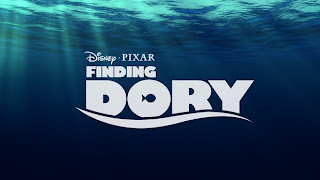Finding Nemo lied to your kids, and they will do it again in the sequel: Finding Dory!
By Patrick Cooney
The Disney film, Finding Nemo, lied to your kids! Disney would simply argue that they altered reality to create a more entertaining storyline, but read below for the true story, and you tell me which you think is a more entertaining.
 |
| Disney forced them to hide the truth! |
How Finding Nemo started:
Father and mother clownfish are tending to their clutch of eggs at their sea anemone when the mother is eaten by a barracuda. Nemo is the only surviving egg and he grows up in his father’s anemone before getting lost on a crazy adventure!
Video of the opening scenes:
How Finding Nemo should have started if it were biologically accurate:
Father and mother clownfish are tending to their clutch of eggs at their sea anemone when the mother is eaten by a barracuda. Nemo hatches as an undifferentiated hermaphrodite (as all clownfish are born) while his father transforms into a female now that his female mate is dead. Since Nemo is the only other clownfish around, he becomes a male and mates with his father (who is now a female). Should his father die, Nemo would change into a female and mate with another male. Although a much different storyline, it still sounds like a crazy adventure!
Video of the truth:
As you can see, the first minute of Finding Nemo, outside of the talking fish part, is the only biologically accurate part of the movie. Considering that they demonstrate reproduction and the killing of the mother in the first minute of the movie, how did they decide that a natural sex change is outside the bubble of viewable material?
Fish reproduction is complicated, and it is especially complicated in cases like the clownfish where species are sequential hermaphrodites. These fish are born as hermaphrodites that develop as one gender before changing to the other gender at some point in their life.
Unlike clownfish that start life as males and transform into females, there are other species, like the California Sheephead, that start as females and transform into males. These opposing forms of sequential hermaphrodites are called protandrous hermaphrodites for male to female changing species, and protogynous hermaphrodites for those that change from female to male.
 |
| The truth! |
A sequential hermaphrodite life history strategy can be extremely detrimental if harvest of fish is allowed prior to male or female reproductive sizes. Should all males be harvested before turning into females at a certain size (or vice versa), a rapid decline would occur in the population. Understanding the triggers and sizes at which fish shift from one sex to the other greatly enhances the ability of fisheries managers to set proper length limits for long term fish population health.
 |
| More lies and deception? |
Be sure to check out The Fisheries Blog on Facebook and Twitter (@FisheriesBlog). If you want to receive our weekly blog through email, leave your email address in the open space at the top right of the page (scroll up!). Also, check out an article we wrote a year and a half ago about how birth control in the water is causing fish to display both male and female gonads at the same time.
 |
| (Source) |
Leave a Reply